Best of #econtwitter - Week of April 17, 2022 [3/4]
Apr 18, 2022
Welcome readers old and new to this week’s edition of Best of Econtwitter. Thanks to those sharing suggestions, over email or on Twitter @just_economics.
This is part three of four.
Paper summary threads

Erkmen G. Aslim@girayaslim
🚨 New Working Paper 🚨
"A Welfare Analysis of Medicaid and Crime" (joint w/ @MuratCMungan and Han Yu)
The punchline: the marginal value of public funds (MVPF) associated with providing Medicaid to inmates exiting prison ranges between 3.44 and 10.61.
papers.ssrn.com/sol3/papers.cf…

6:04 PM · Apr 10, 2022
30 Reposts · 136 Likes

Kyle Myers@KRoyMyers
Happy to see this awesome paper by @PereArque and D. Spulber forthcoming in JPE! Finally incorporates crazy-hard-to-find data on the markets for technology (eg patent licensing) into R&D spillover estimation
journals.uchicago.edu/doi/epdf/10.10…
1:07 PM · Apr 11, 2022
12 Reposts · 37 Likes

Ziad Obermeyer@oziadias
Basically, the exact time you show up at the triage desk determines which ER team you see
And different teams test at different rates.
Because of this quirk, we find:
If high-risk patients show up on a high-testing shift, they *die 32% less* than on a low-testing shift.

3:49 AM · Apr 11, 2022
10 Reposts · 43 Likes

Charles Fain Lehman@CharlesFLehman
New NBER causal estimates of the effect of foster care placement on crime: placement in foster care *reduces* chances of adult criminal offending, possibly by changing parents' behavior.
nber.org/papers/w29922
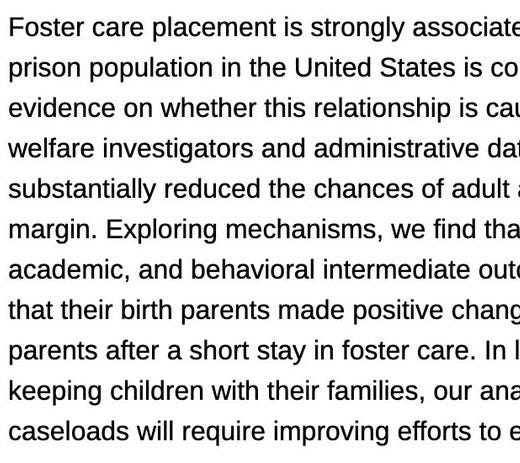
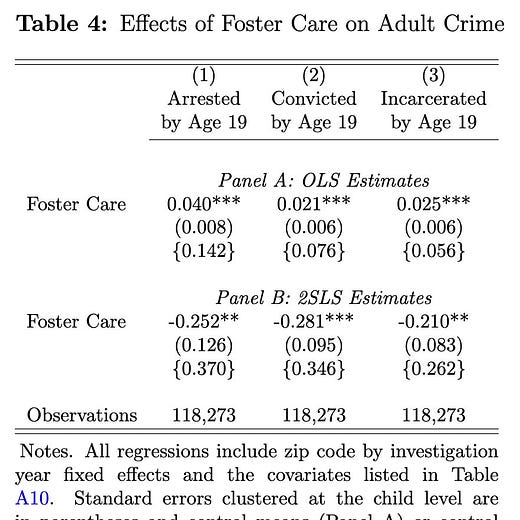
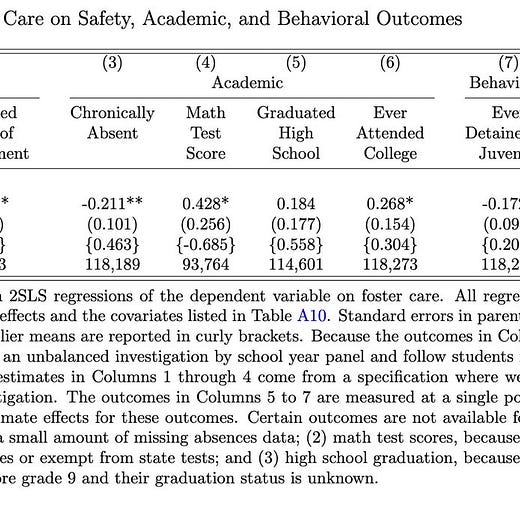
12:15 PM · Apr 11, 2022
3 Reposts · 23 Likes

anthonyleezhang.eth@AnthonyLeeZhang
I wrote a new paper, on the land market in China! Here's the abstract and link, and a short thread on the paper
anthonyleezhang.github.io/pdfs/cls.pdf

1:02 PM · Apr 11, 2022
15 Reposts · 113 Likes

Davis Kedrosky@dkedrosky
Interesting new paper by Yuzuru Kumon arguing that Japan's low-wage early modern equilibrium was "paradoxically" the result of a relatively egalitarian land distribution, which provided a base of sufficiently "land rich" households to sustain population growth.

2:11 AM · Apr 12, 2022
34 Reposts · 173 Likes

Marcin Piatkowski 🇺🇦 🇪🇺@mmpiatkowski
“Why China Never Wanted Shock Therapy and Thus Needed No Escaping from It?" @clz030857 and mine review of @IsabellaMWeber ' bestseller on “How China Escaped Shock Therapy”. The whole review muse.jhu.edu/article/848484 is here. Some key highlights below🧵1/n
muse.jhu.edu
Project MUSE - Why China Never Wanted Shock Therapy and Thus Needed No Escaping from It: A Critique of Isabella M. Weber’s Argument

6:32 PM · Apr 14, 2022
58 Reposts · 187 Likes

Rafael Ihara@rafael_ihara
crise de opioides está segurando força de trabalho nos eua. nber.org/papers/w29932#…

5:39 PM · Apr 14, 2022

Zach Ward@EconZach
Important new paper on the long-run impact of school desegregation using new and improved linked data.
Court-ordered desegregation improved Black outcomes for those young enough to be exposed, had no impact on whites.
@jasonmfletcher
nber.org/papers/w29926
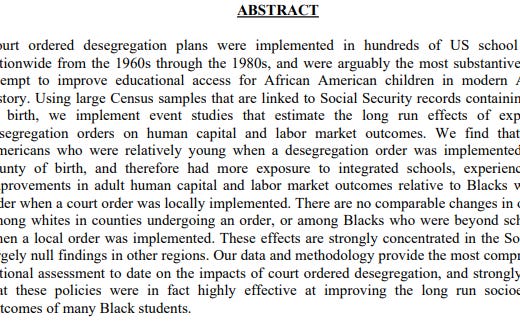
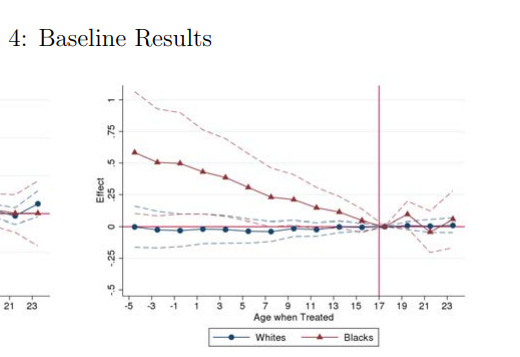
1:58 PM · Apr 11, 2022
8 Reposts · 18 Likes

Justin Sandefur@JustinSandefur
"Reducing each country’s Gini index by 1% per year has a larger impact on global poverty than increasing each country’s annual growth 1 percentage point above forecasts."

2:44 PM · Apr 14, 2022
89 Reposts · 204 Likes

Paddy Carter@CarterPaddy
@JustinSandefur I cannot work out whether this is a meaningful comparison, because both feature 1%. If we looked at data on growth rates or gini changes over, say, a decade, I wonder what the standard deviations look like.
3:22 PM · Apr 14, 2022
7 Likes

Dustin Moskovitz@moskov
@albrgr I bet it’s very different for this poverty bar ($1.90/day) vs higher ones. Doesn’t take a lot of existing wealth to cover that part of the tail.
4:58 PM · Apr 14, 2022
3 Likes
Interesting discussions

Perpetual Amazement@ttfcui
It's the announcement day for econ's John Bates Clark medal, so also time to update my graphic of all the JBC medallists!
I forgot if I tagged @Undercoverhist on this last year, but I'll point it out again this year.

3:00 PM · Apr 12, 2022
10 Reposts · 33 Likes

Brenton Kenkel@BrentonKenkel
I had GPT-3 answer the kinds of questions I might ask undergraduate international relations students.
These answers are all 100% AI-generated.
Educators (like me) whose assessments rely mostly on student writing are going to have to adjust to a world where AI can do this.

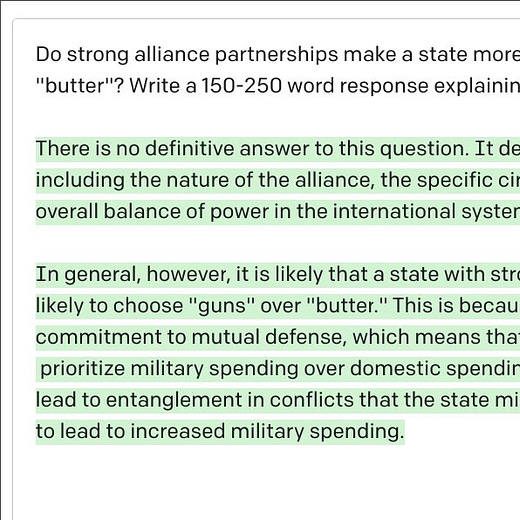
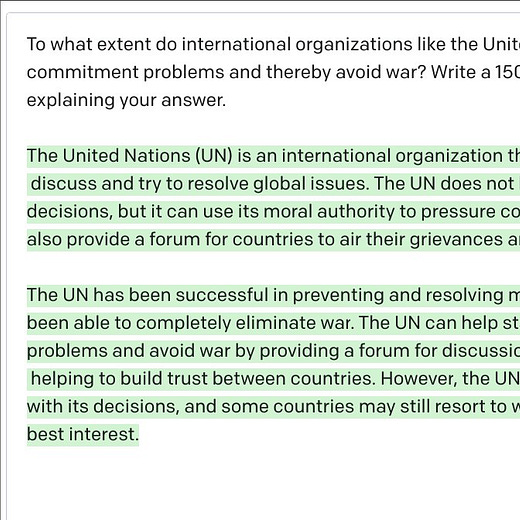
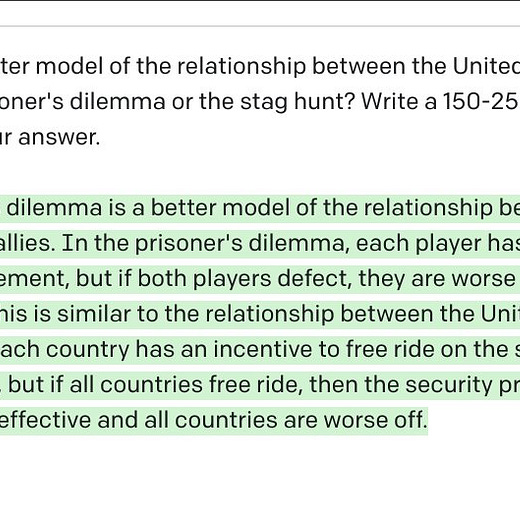
2:11 PM · Apr 15, 2022
226 Reposts · 971 Likes

anthonyleezhang.eth@AnthonyLeeZhang
Someone should do this for academics

Ryan Estrada @ryanestrada
A cafe in Japan only for writers on a deadline. You tell them what you need to finish before you go in, and you're not allowed to leave until you're done. https://t.co/iwkolXNF0v
7:23 PM · Apr 12, 2022
1 Repost · 19 Likes

quan le 🍚🥢@qlquanle
can't believe econ/stats people came up with a magical method that does almost everything and called it "ordinary" "least"
4:56 PM · Apr 13, 2022
105 Reposts · 1.17K Likes

